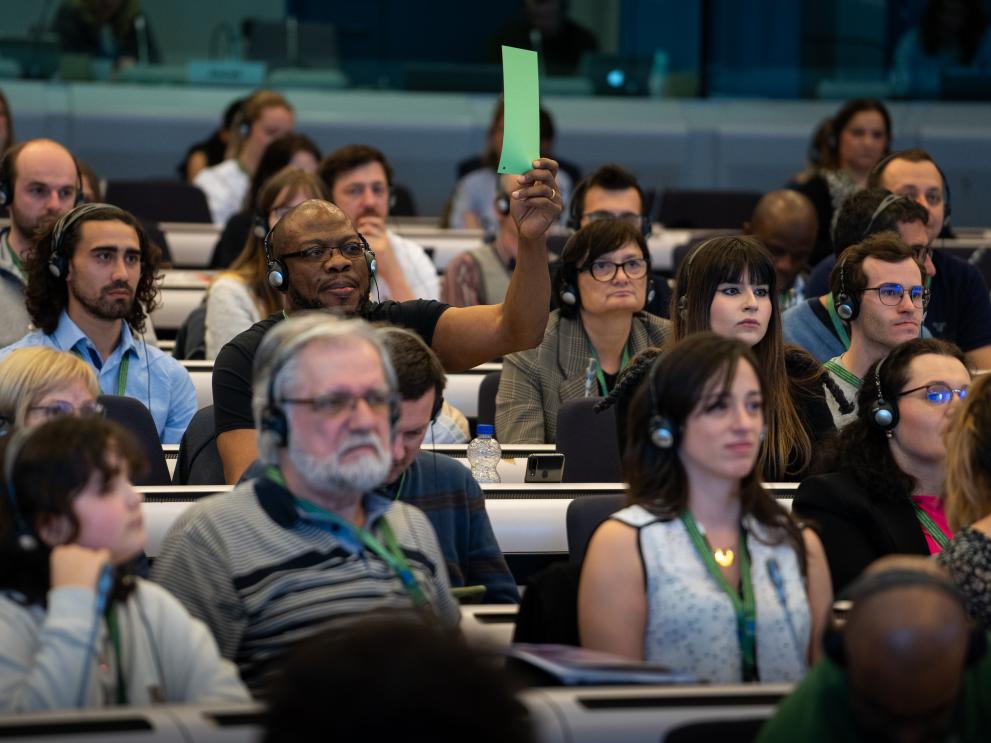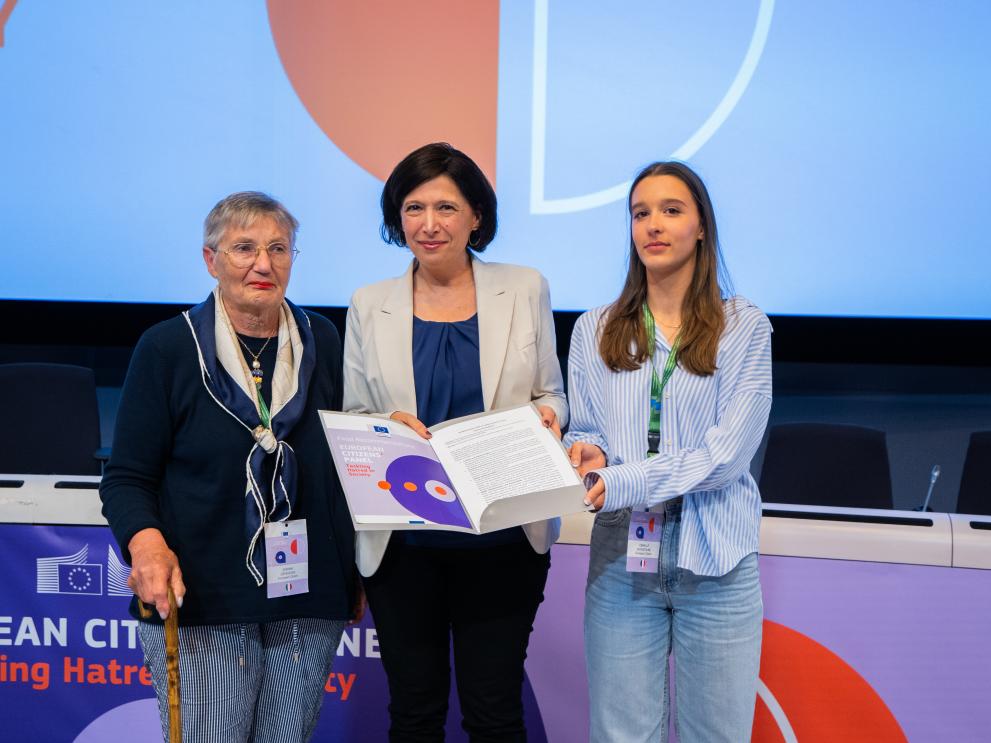Conclusion of the Debate on Tackling Hatred in Society

After months of insightful contributions and deliberations, the Citizens’ Engagement Platform has brought the debate on Tackling Hatred in Society to a close. Citizens from all across Europe have been sharing their views on the various causes and drivers of hatred and different fields of action to address them.
The ideas that were submitted by citizens on the Platform informed the discussions of the European Citizens’ Panel on Tackling Hatred in Society. The European Commission will follow up on these results, which in turn will help to guide future Commission initiatives.
The final report about the results of the debate can be found in the documents section below.
Why are we discussing hatred in society?

Europe today is experiencing an alarming increase in hate speech and hate crime. Hatred not only harms those directly targeted but also threatens social cohesion and democratic debate.
In December 2023, the European Commission adopted the Communication No place for hate: a Europe united against hatred, calling for a citizen-led discussion on how to move from division to shared respect, dignity, and equality—core values of the European Union.
As part of this process, 150 citizens from all Member States developed 21 actionable recommendations. These included modernising the EU definition of hate speech, strengthening victim support systems, promoting inclusive education, and launching awareness campaigns to counter hate both online and offline.
Tackling Hatred: What’s at stake?

While it is not easy to measure the magnitude of hate, some figures may be illustrative:
- Hateful toxicity increased by 30% between January - September 2023 out of 8 million online messages analysed in the EU.
- 55% of the respondents to a survey of the European Union Agency for Fundamental Rights experienced racial discrimination in the EU more than three times from 2022 to 2023.
- One in three women have experienced physical or sexual violence at least once.
How can we tackle hate speech and hate crime?

We asked for your ideas and personal experiences on how we can enhance mutual respect within our communities. Over the course of 10 months, you had the opportunity to join the debate and share your recommendations for how the European Commission can address hatred in society. Some of the key recommendations that emerged from the debate included:
- Raising awareness through education and responsible discourse
- Promoting inclusion and unity by creating a sense of belonging in our communities
Strengthening democratic institutions and encouraging respect and tolerance
Click on "Find out more" to explore the full discussion.
What has the EU done so far on this issue?

The framework for action against hatred at EU level comprises both regulatory and policy initiatives. The below overview is non-exhaustive: follow this link to read more on the legal and policy framework for combating hate speech and hate crime in the EU.
Existing measures to combat hate speech and hate crime
- 2008 Framework decision on combating certain forms of expressions of racism and xenophobia
- December 2023 communication ‘No place for hate: a Europe united against hatred’
- EU strategy on combating antisemitism and fostering Jewish life
- EU Roma strategic framework on equality, inclusion and participation
- EU Anti-Racism Action Plan
Measures to tackle illegal hate speech online
The European Citizens’ Panel on Tackling Hatred in Society has submitted its recommendations to the European Commission

Over three weekends, 150 randomly selected citizens representing all 27 EU Member States have been coming together to discuss the various causes and drivers of hatred in the EU and different fields of action to address them.
Together, the citizens have put forward a series of recommendations that will contribute to shaping future EU laws and feed into upcoming Commission initiatives.


